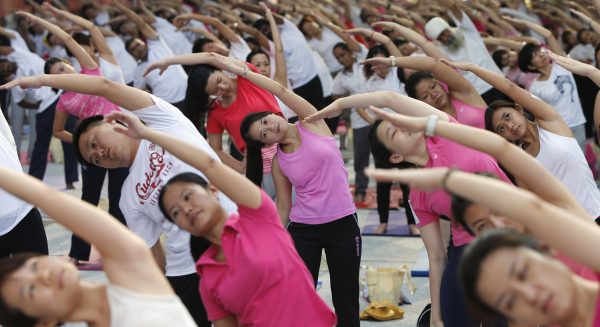The now abolished Malaysian Health Promotion Board (MySihat) complemented the Ministry of Health’s (MOH) role in the prevention and control of NCDs by promoting healthy lifestyles. Its work was in line with the priority areas of the Malaysia–WHO Country Cooperation Strategy 2016–2020.
MySihat, established as a statutory body by the Malaysian Health Promotion Board Act (Act 651), was a semi-autonomous entity within the MOH. Since its inception in 2006, it has promoted healthy lifestyles and chronic disease prevention programs. MySihat initially proposed to secure stable financing by imposing an earmarked tax on tobacco, alcohol and other harmful products. But a lack of political commitment changed the funding sources. MySihat was offered funding through the treasury budget’s allocation for health. But the MOH makes the final decision on the distribution of funds.
This funding mechanism is often limited and varies yearly depending on the availability of funds. Allocation is determined by the past year’s performance and competition with other programs. MySihat received an annual allocation of RM36 million (US$8.2 million) in 2007 but it dwindled to RM5.5 million (US$1.3 million) in 2016 and was maintained that amount until 2018.
MySihat spent 42 per cent of its budget between 2008–2018 to support the implementation of various health promotion programs at the community level. It collaborated with more than 1000 groups and organisations over that period and supported cross-sector partnerships between government, non-governmental organisations (NGOs) and the community. Such partnerships build the capacity to strengthen health promotion knowledge and skills among health-related and community-based organisations, benefitting millions nationwide.
In June 2018, Health Minister Dr Dzulkefly Ahmad announced a cabinet decision to abolish MySihat as part of the government’s rationalisation plan. Health advocates and NGOs have expressed their concerns.
MySihat’s responsibilities were transferred to other MOH departments without addressing the funding source problems for the annual health promotion programs. Most of the health budget is allocated to curative (acute) health care over preventive health promotion initiatives. The 2020 budget allocated the health sector RM30.6 billion (US$7 billion). But the allocation for prevention and control programs was unclear, and the country’s NCD burden remains unabated.
Health promotion needs multi-sectoral collaboration and a new sustainable financing mechanism for innovative health promotion programs. Additional fiscal resources are needed to achieve the 17 Sustainable Development Goals in the United Nations’ 2030 Agenda.
One way is to impose a surcharge tax on health-harming products, like tobacco, to generate a secure funding stream for health promotion. Its consumption contributes to all four major NCDs. This is in line with recommendations from the Article 6 Guidelines and Article 26 of the World Health Organization Framework Convention on Tobacco Control. Earmarking tobacco tax revenue would strengthen the effectiveness and sustainability of current health literacy and NCD prevention programs. This has been successful in 30 other countries.
Adopting and adapting experiences from the Thai Health Promotion Foundation (ThaiHealth) and other health promotion foundations worldwide would help to shape a new health promotion foundation in Malaysia. Thailand is the first ASEAN country to establish an autonomous health promotion agency. Since ThaiHealth’s establishment in 2001, it has received funding through a 2 per cent surcharge levied on alcohol and tobacco excise tax.
The ThaiHealth funding mechanism has been effective in securing a reliable source of funding for health promotion. The funding for Thai Health has increased from 3.11 billion baht (US$97 million) in 2010 to 4.37 billion baht (US$136 million) in 2017, enabling it to implement short-, medium- and long-term health promotion programs across the country. In 2017, a 2.91 billion baht (US$91 million) fund was allocated for some major NCD risk reduction programs such as tobacco and alcohol control, and traffic accident prevention.
Such an allocation is a small investment compared to the economic cost of 280 billion baht (US$8.6 billion) — or 2 per cent of GDP — attributed to NCDs due to premature deaths and loss of productivity in the workforce in 2013. Many countries regard ThaiHealth as the gold standard for health promotion models.
To address the problems faced by MySihat, the Malaysian government should replace MySihat with an autonomous agency, using surcharge tax to secure a predictable and stable budget for health promotion programs. It will be a win-win policy for health as well as the budget.
Yen Lian Tan is the Knowledge and Information Manager at the Southeast Asia Tobacco Control Alliance (SEATCA).

